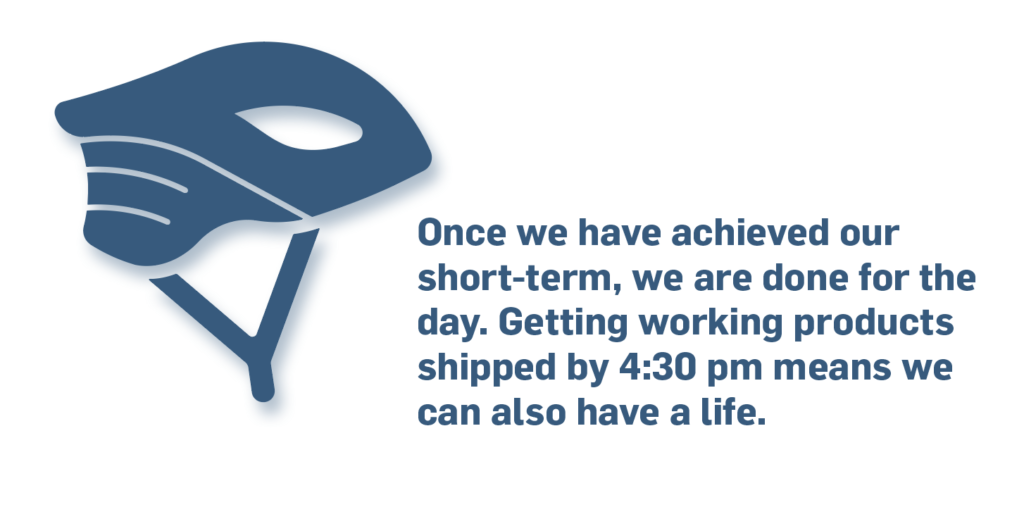This article is the seventh part of a 12-part series featuring snippets from my new book, The Agile Secret.
- 1. Living in the VUCA World
- 2. The Freelance Revolution
- 3. The Digital Revolution
- 4. The Birth of Agile
- 5. Get It Done
- 6. Shipping Is The Metric
Agile Manifesto Rule #8: Agile processes promote sustainable work rates. The sponsors, developers and users should be able to maintain a constant pace indefinitely.
Tuesday night’s “chaingang” is epic. At a crossroads in West London, 20-odd cyclists arrive from 7:15–7:30 pm for a 90-minute blast down a highly specific route, “The Pearson Chaingang”, a segment on Strava. Flying out of Richmond, right across the Thames, then left towards Hampton Wick, there’s a 10k warm up before things get deadly serious. A Lycra-clad, carbon-armed cage fight, where youthful up-and-coming bikers from the London club scene pit their wits against balding middle-age city pros splashing the cash annually on a top-end bike.

Can we maintain the pace?
Every Tuesday I have a little schoolboy tummyache: Nerves. At 5 pm it turns into an adrenaline-fuelled body tingle. I have a very light bite to eat. Get out of work. Gear on. Check the tyre pressure. Head to Sheen. Bella, Drew, Robin, Helen, Tom, Will, Al, Bruce and others are all heading to the same spot.
We are all there to answer one question. Can we maintain the pace? Chaingang is a “no wait” ride. If you are spat out the back, breathing hard, legs burning, face covered in snot, that’s it. Some current and ex-pros will try to shatter the teamwork with repeated hard efforts. Sometimes there’s the euphoria of staying in at the top of the final hill. Sometimes you find yourself riding through a dark London street, alone, watching the red lights of the group leave you.

Work can feel like this. Our bodies and minds – fatigued by effort, drained by deadlines, ruined by years of burning the candle at both ends – slowly give up. We gain weight, neglect our marriages, fail to pop in on our parents, reduce our circle of friends. Agile recognises that urgency can be an everyday experience. But it doesn’t have to end in a deficit. We need to find a constant pace that we can maintain indefinitely.
Working late = weakness
As a fan of reverse psychology, I see working late as a sign of weakness. Working late occasionally is natural. It says that, due to something unexpected, I’m putting in a shift to get this done. But it is not possible to work intensely, productively and fruitfully every day.
Working in an agile environment means there is always a short-term goal. Once we have achieved it, we are done for the day. Getting working products shipped by 4:30 pm means we can also have a life.
Tuesday nights are massive for me, personally. For 15 years I held no regular out-of-work commitments. A different country every week. A different continent every month. I wasn’t working “late”, but work disrupted the rhythm of my life. That’s ok for a season. Agile’s founders recognise that we can work for a period of time where we have to make compromises outside of work. But not forever.
Life must be lived at a tempo we can sustain indefinitely. And not just for us. For our stakeholders, our board of directors, our partner, our friends.
So put the chaingang, or whatever you do, in the diary and keep it there. If nothing else, it helps us remember to leave work and do something we enjoy.
Part 8: Even Better If
Download The Agile Secret on Amazon Kindle here.
